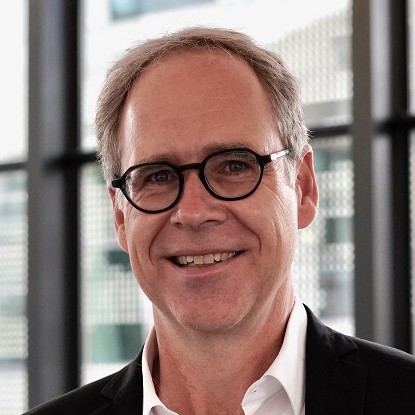‘The Path to One of the Most Important Fields of Research of Our Time’
Doctoral student Phil Reize on his studies in medical technology – part four of a five-part series
2025/10/14
For Phil Reize, the medical technology degree programme brought together two of his interests: electrical engineering and medicine. In this interview, the 24-year-old, who graduated in October 2023, looks back on his studies – and gives first-year students an important tip.

If you had to explain the medical technology degree programme in one sentence, what would it be?
Phil Reize: An electrical engineering degree enhanced with basic medical knowledge, great insights into clinical practice and an inherent focus on interdisciplinarity, paving the way towards one of the most important fields of research of our time.
Why did you decide to study medical technology?
I wanted to study something within engineering with a focus on electrical engineering. To do so, I decided against pursuing a traditional medical degree, which I was also very interested in. At the same time, my best friend decided to study mechatronics, and while scrolling through the website, I found ‘Med’ listed right below ‘Mec’. That's how I discovered the degree programme that combines both of my interests.
What was the biggest surprise for you when studying medical technology?
How quickly I became desensitised to the less pleasant aspects of medicine. At the end of my school days, I couldn't even watch a frog being dissected in biology class. By the end of my bachelor's degree, I was able to watch open-heart surgery, and now I work part-time in the emergency services.
What was your coolest and what was your most bizarre experience during your studies?
Since I was part of the first cohort and only a few of us remained, especially in the Master's programme, at the end of my studies I was sometimes alone with Theresa Nolte (also featured in this series) [link] in lectures at the university hospital. This allowed the doctors to put together a very interesting and personalised programme for us. The most bizarre thing during my studies was observing the removal of a tumour from a patient's brain while the patient was not under general anaesthesia but only local anaesthesia.This is done to ensure that no parts of the brain that the patient still needs are damaged. He even chatted with us quite casually during the operation.
Recommended external content
We have selected external content from YouTube for you and would like to show it to you right here. To do this, you must reveal it with one click. You can hide the external content at any time with another click.
I agree to external content from YouTube being shown to me. This may result in personal data being transmitted to third-party platforms. You can find more information in our Privacy Policy.
How important was the medical component of your studies in Frankfurt?
The medical component is a huge advantage. Due to their own training and practices, doctors often find it difficult to communicate to engineers what they need to solve a problem. Knowing the terminology and the inner workings of clinical practice makes communication much easier and facilitates entry into research and development in medical device technology.
What advice would you give to first-year students or those just starting their studies?
First and foremost, it is an electrical engineering degree. Even though 20 per cent of the teaching takes place at the university hospital, the workload for the TU modules is much greater. It is very difficult to complete the programme within the standard period of study, and in the long run it is not worth it, as your own qualifications and grades can suffer greatly from trying to rush through it. Take the time you need to understand the basics well; you will need them later in your studies.
What did you do alongside your studies?
Since my third semester, I have been working as a student assistant in various laboratories at the TU and have also been teaching a range of basic subjects. I spend a good part of my free time volunteering with the German Red Cross in Darmstadt in disaster-relief operations. Since I come from Frankfurt, I regularly go there to spend time with my family and school friends.
What are your career plans, and are they the same as when you started your studies?
I am currently working at the TU as a doctoral student in the field of biophotonics – medical technology, one of the earliest branches of MedTec. So in the medium term, I will remain at the university. In the long term, I could imagine an academic career with a professorship, as I enjoy teaching and appreciate the freedom of research work here. I had already planned to do a PhD while I was still at school, but the rest was always open.
The questions were posed by the communications team of the Department of Electrical Engineering and Information Technology (etit) at TU Darmstadt.
Facts and figures
The RMU cooperative degree programme Medizintechnik at a glance
- 132 – degrees awarded since the programme startet in the winter semester of 2018/19
- 256 – Number of bachelor's degree applications (winter semester 2024/25) for 120 slots
- 144 – Number of master's degree applications (winter semester 2024/25)
- 50,9 percent – Proportion of women in the bachelor's degree programme (winter semester 2024/25)
- 58,8 percent – Proportion of women in the Master's programme (winter semester 2024/25)
- 42 – Students spending time abroad (winter semester 2024/25);most popular destinations: Great Britain, Ireland, Scandinavia








